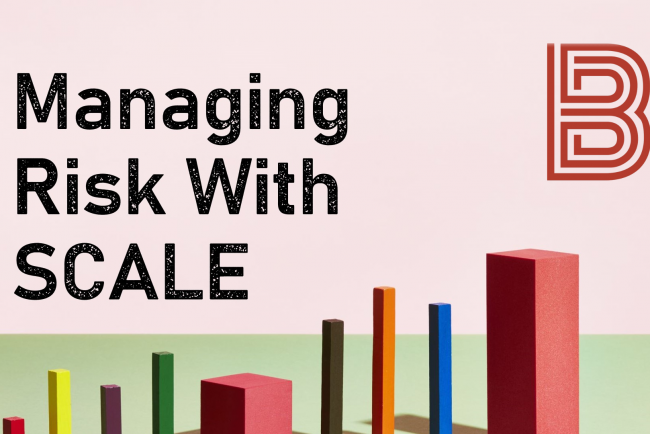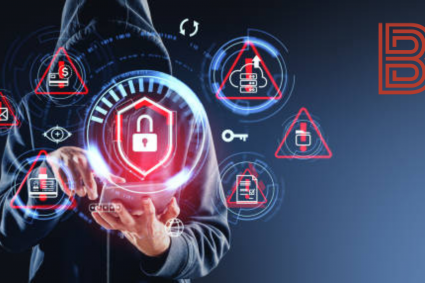Baretzky and Partners Latest News
Risk Mitigation and Compliance

by Admin
Baretzky & Partners LLC: A Global Leader in Cross-Border Criminal Investigations and Mitigation
Introduction In an increasingly interconnected world, the complexities of international crime demand specialized expertise and collaboration. Baretzky & Partners LLC stands as a beacon of excellence in cross-border criminal investigations and mitigation, carving a niche for itself through its innovative approach and strategic partnerships with […]
NewsRroom
by Admin
Geopolitics Replaces Inflation as the Top Worry for Central Banks and Sovereign Wealth Funds
In recent years, central banks and sovereign wealth funds (SWFs) have experienced an evolving shift in the global risk landscape. Traditionally, inflation and macroeconomic stability have been the primary concerns for these financial institutions. However, recent geopolitical tensions, international conflicts, and shifting power dynamics have […]
NewsRroom
by Admin
The Impact of SCALE on Risk Management and Its Consequences
Risk management is an essential component of any business strategy. As organizations continue to evolve and expand, the complexity and scope of risk management also grow. One concept that plays a significant role in understanding how organizations can assess, manage, and mitigate risks is the […]
NewsRroom




Navigating Integrity Amid Rapid Change and Economic Uncertainty
by Admin
In today’s fast-paced world, businesses face unprecedented challenges. Rapid technological advancements, shifting consumer expectations, and global economic uncertainty create a volatile environment that tests the very foundation of corporate integrity. In such a landscape, maintaining integrity becomes more challenging, yet more essential than ever before. […]
NewsRroom
by Admin
Cloud computing has become integral to modern business operations, offering scalable resources, cost efficiencies, and flexibility.
However, as organizations increasingly rely on cloud services, cloud computing security risks have emerged as a significant concern in cyber risk management. One of the primary security risks associated with cloud computing is data breaches. Cloud environments are often multi-tenant, meaning that data from multiple […]
NewsRroom
by Admin
Cyber Risk Quantification in Cyber Risk Management
In an era where digital infrastructure underpins the global economy, the importance of cyber risk management cannot be overstated. As cyber threats continue to evolve in sophistication and scale, organizations must develop robust strategies to manage these risks effectively. Central to this effort is cyber […]
NewsRroom
by Admin
Risk prioritization and prevention are critical aspects of effective cyber risk management.
As organizations become increasingly reliant on digital technologies, they face a growing number of cyber threats that can jeopardize their operations, data integrity, and reputation. To manage these risks, organizations must prioritize them based on potential impact and likelihood and implement preventive measures to mitigate […]
NewsRroom
by Admin
Integrity and Anti-Corruption Compliance in Risk Management
Integrity and anti-corruption compliance are central pillars in effective risk management for organizations. In an increasingly globalized world, where businesses operate across diverse regulatory environments, maintaining high standards of integrity and ensuring robust anti-corruption measures have become not just legal obligations but strategic imperatives. The […]
NewsRroom
by Admin
Zero Trust is a cybersecurity model that assumes no entity, whether inside or outside an organization’s network, should be automatically trusted.
Instead, every user and device must be verified before access is granted to resources. This approach marks a significant shift from traditional perimeter-based security, which focuses on defending the network’s boundary while assuming that anything within is secure. In the context of cyber risk management, […]
NewsRroom
by Admin
Data Security Risks and AI in Cyber Risk Management
Data security risks have become a critical concern in the digital age, where data is a valuable asset but also a significant target for cybercriminals. The exponential growth of data and the increasing sophistication of cyber threats have amplified the importance of robust cyber risk […]
NewsRroom
by Admin
Quality assurance (QA) in Anti-Money Laundering (AML) plays a crucial role in risk management by ensuring that AML processes and controls are effective, compliant, and consistently applied.
AML frameworks are designed to detect and prevent illicit financial activities, such as money laundering and terrorist financing. Quality assurance in this context is essential to ensure that the risk management strategies implemented are robust and capable of addressing the dynamic and complex nature of […]
NewsRroom
by Admin
Cross-Site Scripting (XSS) is a prevalent and dangerous web application vulnerability that poses significant risks within the domain of cyber risk management.
XSS occurs when an attacker injects malicious scripts into a web page that is viewed by other users. These scripts are typically executed in the victim’s browser, potentially leading to unauthorized actions, data theft, and further compromises. In cyber risk management, XSS is particularly concerning […]
NewsRroom
by Admin
Data warehouse migration involves transferring data from one data storage environment to another.
This process can be complex, requiring careful planning and execution to avoid data loss or disruption. There are several types of data warehouse migration, each with distinct characteristics and challenges: Lift-and-Shift Migration: This approach involves moving the entire data warehouse as-is to a new environment, […]
NewsRroom





















